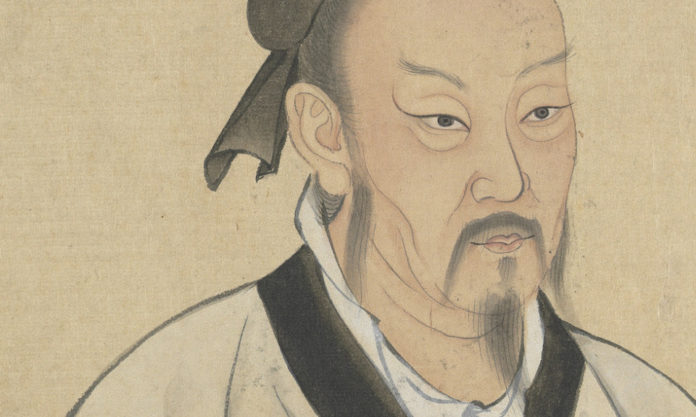Apart from some lecture from whatever moral authority, can you really point out why exactly honesty is good?
To answer this question, let’s go back to ancient China. The Warring States. Chaos and turbulence. A determined philosopher who trekked across the kingdoms. Nope, not Confucius, but Mencius, a Chinese thinker whose importance to the Confucian tradition is second only to that of Confucius himself.
Mencius saw the heart, the mind as the the nexus of philosophical activity and self-cultivation, the place where the divine, the political, the human, and the personal all intersect. So it makes sense for him to state that “诚者, 天之道也; 思诚者, 人之道也”, translating to, ”In essence, honesty is the path of nature, and seeking honesty is the path of being”.
This saying, unlike other teachings throughout ancient philosophy, is not shrouded in mystique. It is not our charismatic old friend Diogenes with his lantern in broad daylight, “looking for an honest man”. We see the simple, elegant truth. It is a statement with dignity and compassion, highlighting honesty as the primary virtue, pursuit and disposition of people, to the point that they exemplify being. Across ethnicity, religion, and culture, honesty stands as one of the most distinguished virtues.
There is perhaps not a single more apt principle to live by in our times, as we scroll through our digitised profiles, conversations, flattering comments, and the endless propaganda, showering our cerebrum with blatant publicity stunts, with ludicrous excitement in the form of the newest Netflix reality TV show or the latest YouTuber drama.
On the other hand, some could even argue that honesty is no longer on the “path of being”. It could merely be an attraction along that path; an attraction however beautiful, that tourists will only stop by for some time to appreciate, and then hop off to their next destination.
Looking back, however ridiculous Diogenes’ attempt to seek honesty with candlepower may seem, it is exactly something we might just scroll to on our feed; some unexpected, attention-grabbing, sensational image, for us just to shrug off and then pry into yet another convoluted social media post.
So, why exactly is this place, honesty, getting all the 5-star reviews on the path of being, especially by those, er, philosophers?
Well, just as how we learn to recognise good when we see evil, the importance of honesty precisely comes from the dangers of dishonesty.
Here again, we embarrassingly contradict ourselves. In daily life, we all transact and trade “dishonesty”, however simple or complex, insignificant or important, harmless or devastating.
We are gripped by that which calls for submission, for self-censorship, for constant shifts in attitude, language and the degree to which we stay “honest” throughout our day-to-day life; we are gripped by things that reject the path of nature as naïve as rainbows and lollipops, irritating to the colonial settlers, and even dangerous as if a mystical cult.
In contrast, it is clear that Mencius respected traditional, societal obligations, the “things” that tower above us all. Even so, rather than being self-contradictory, it is in fact much more coherent than simply rejecting all of society.
Brutal honesty is yet another extreme that could ultimately be scrolled past, scoffed at by another viewer. The path of seeking honesty is not one that people can really pose sexily in, add an enticing caption, and post to Instagram. While it is undeniable that mundane dishonesty (“It was a pleasure to meet you” / “I’m fine” / “I can finish this work tomorrow”), has become an inseparable part of ourselves, and that we all tread a rather narrow tightrope between societal expectations of dishonesty and honesty depending on convoluted principles, we can still participate in society willingly, and rationally.
Just as Mencius accepts nature as profound and unknowable, we can accept that our thinking may not always, or even the majority of the time, be reconcilable with our outside behaviour. Gradations from public to private, from insincere to authentic, from socially acceptable to deviant all contain subtleties that we can learn to appreciate.
As such, rather than emphasising only honesty in behaviour, wielding the word as a weapon to criticise and judge others for not following Diogenes in pissing on the streets, it is the most powerful tool for introspection. Rather than simply concerning ourselves with plagiarism, counterfeit products, identity theft, or our “dishonest” interactions and obligations, honesty should also be recognised as the foundation upon the search for being.
Without it, there is the true danger of dishonesty; deceiving yourself. Even though we can accept shades of honesty in society, what is unacceptable is actually believing that “it will always be a pleasure to meet anybody in business”, that “I will perpetually be just fine as the strangers see it”, and that “I can definitely finish all work whenever needed.” If we cannot tell the difference between honesty in behaviour and in thinking, we allow our being to be dictated by beliefs in which we have little faith.
We must imagine what straying from the path of being really means; the heart and the mind being entrenched by beliefs that are at war with the truth, the death of philosophical activity and self-cultivation, the death of the divine, the political, the human, and the personal.
We can look below, looking clearly at the paths that we have taken and decide whether they have stayed true to us. After all, Mencius is confident in every one of us, in every one of us in achieving the human potential of good, whether or not we are sitting on our asses scrolling through the feed.









